In Tarun Tejpal acquittal, judge questions 'appropriate' behaviour for rape victims
- Published
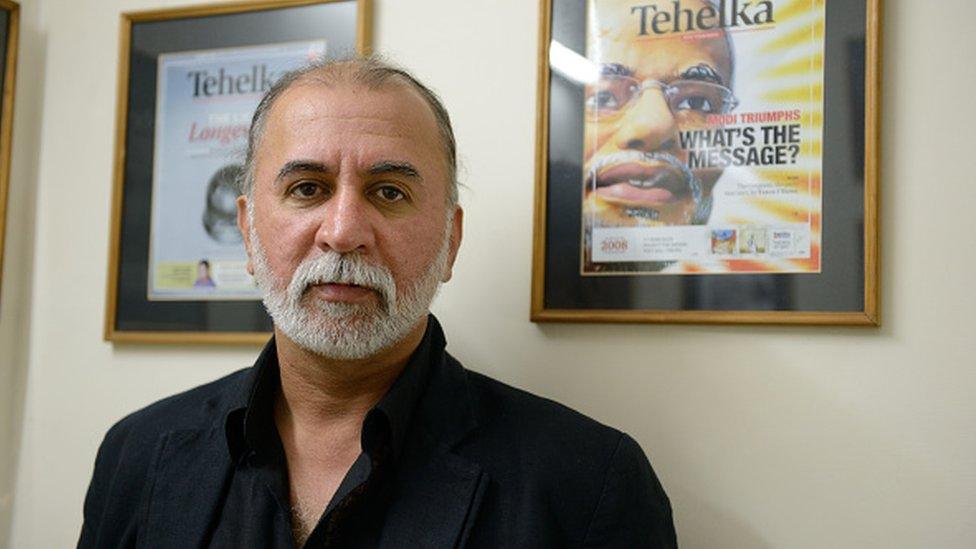
Tarun Tejpal, the former editor of Tehelka news magazine, was accused of raping a colleague
Is there an appropriate way for a rape victim to behave?
That's the question many are asking in India after a judge threw out charges against a man accused of raping a female colleague and questioned the behaviour of the alleged victim.
Judge Kshama Joshi wrote that in photographs taken shortly after the alleged assault, the young woman was "smiling and looked happy, normal, in [a] good mood".
"She did not look disturbed, reserved, terrified or traumatised in any way even though this was immediately after she claims to have been sexually assaulted," the judge wrote in a 527-page judgement.
The charges against Tarun Tejpal, the high-profile former editor of Tehelka magazine, were dismissed. The Goa government, which has appealed the decision, asked on Thursday for an early hearing, saying "we owe it to our girls" and that the acquittal order was "erroneous in law" and "unsustainable". The High Court judge agreed and said he would hear the case on 2 June.
'Morality on trial'
The woman accused Mr Tejpal of assaulting her in an elevator on two successive nights at a Tehelka event in Goa in November 2013. Police filed charges running to nearly 3,000 pages, accusing the editor of "wrongful restraint, wrongful confinement, assault, sexual harassment and rape by a person in position of authority or control". Mr Tejpal denied all the charges.
The allegations against such a prominent figure in Indian journalism and publishing made headlines around the world. Tehelka, the magazine he founded in 2000, was known for breaking some of the biggest investigative stories in Indian journalism. His publishing house India Ink represented big names in the literary field, and he counted Booker Prize-winner Arundhati Roy and Nobel laureate VS Naipaul among his close friends.
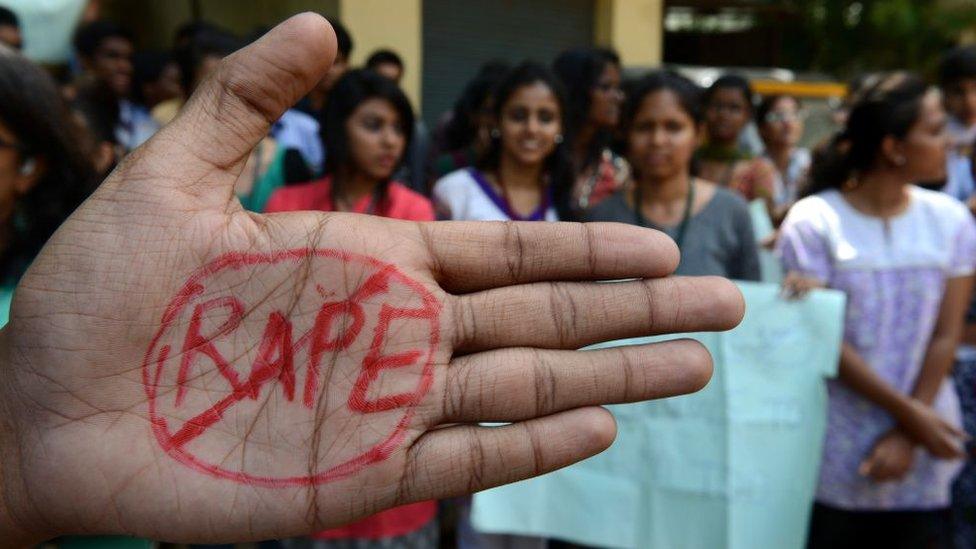
Indian students participate in an anti-rape protest in Hyderabad in September 2013
The woman who accused him was not just his employee, she was also his friend's daughter and his daughter's best friend. In court, she said that he had been like a father to her and that she trusted him.
Mr Tejpal's acquittal surprised many. His description of events had shifted somewhat, from initially saying their encounters were consensual, to blaming them on "a lapse of judgement" and "a misreading of the situation" which had "led to an unfortunate incident", and then retracting an earlier statement in which he'd said he had "attempted a sexual liaison with you despite your clear reluctance" - saying he had been forced to issue it in the first place.
In court papers, he described the incidents in the lift as "drunken banter".
After Mr Tejpal was acquitted, the judge turned her attention to his accuser. She questioned why the woman had told three male colleagues about the alleged assault and not her female roommate; why the woman didn't cry in the presence of her friends; and why she didn't "demonstrate any kind of normative behaviour".
"It's unbelievable that she forcefully struggled but sustained no injuries," the judge wrote.
The judgement provoked sharp criticism.
Aparna Bhat, a Delhi-based lawyer, acknowledged that Mr Tejpal's defence was "entitled to put forth its best case" and it was "for the judge to control it".
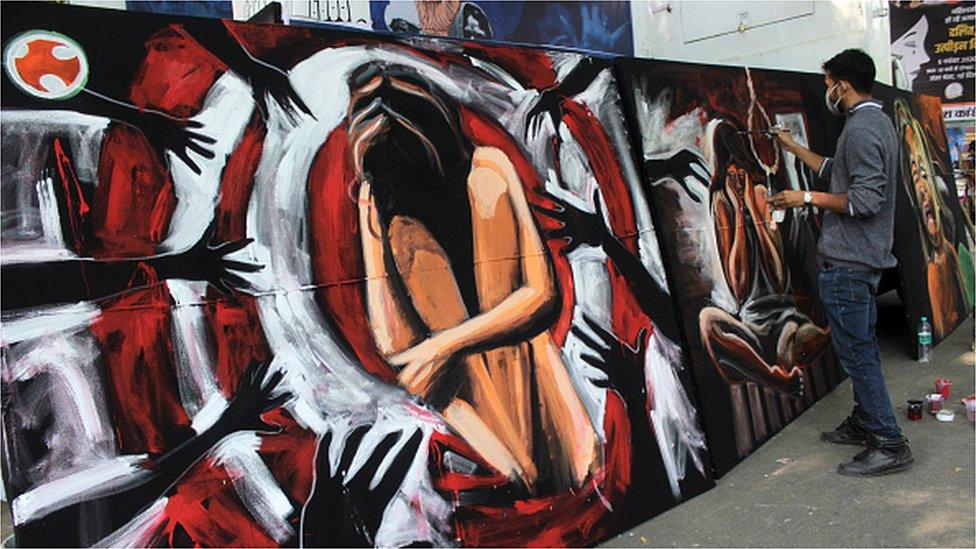
An artist painting a mural for an anti-rape protest in Delhi
But, she said, "here the judge seems to actively slander the woman. The entire judgement has assaulted the victim".
"There are some demeaning references to the young woman, absurd inferences drawn about how certain physical behaviour as stated by her was not probable, that she was chatting with others she had had previous casual sexual encounters with and it goes on," Ms Bhat said.
The entire judgement was "a consistent chain of innuendo showcasing the young woman as someone who engages in sexual escapades", she added.
Another lawyer, Payal Chawla, said the judgement was "not just character assassination, it's a massacre of her character".
"The woman partying in a bar and dancing with a drink in her hand seemed to have irked the judge. It seems like the young woman's morality was on trial, and not whether there had been a rape," Ms Chawla said.
'Not the way our women react'
This is not the first time that an Indian judge has been accused of making a misogynistic ruling. Last year, a judge in Karnataka sparked outrage when he called the behaviour of an alleged rape victim "unbecoming".
"The explanation offered by her that after the perpetration of the act she was tired and fell asleep is unbecoming of an Indian woman," the judge said, adding that it was "not the way our women react when they are ravished".
On that occasion, Ms Bhat wrote an open letter , externalto the chief justice of India and the three female judges of the Supreme Court asking if there was "a protocol for rape victims to follow post the incident which is written in the law that I am not aware of".
The popular artist @PENPENCILDRAW created an illustration in response to that ruling, depicting "an Indian judge's guide to being an ideal rape survivor". The illustration went viral.
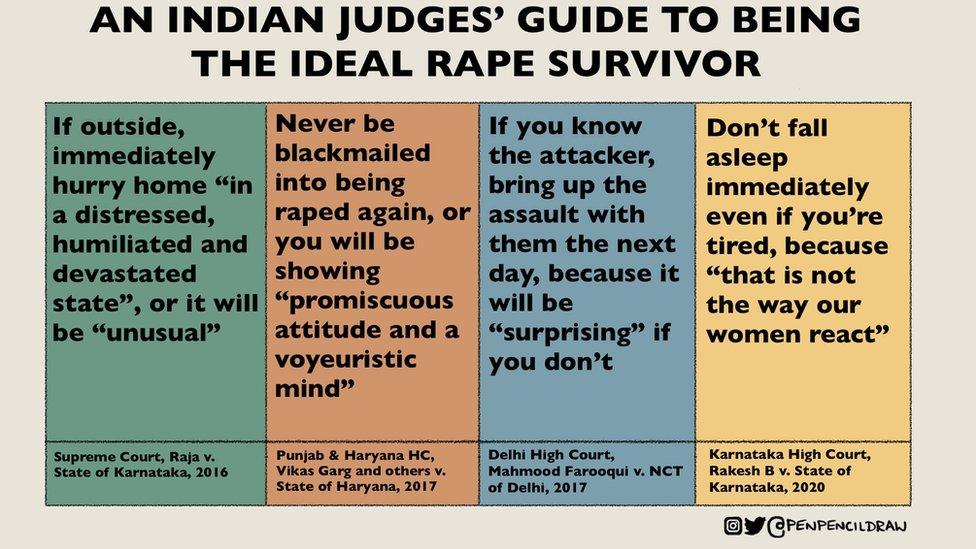
This illustration by Indian artist @PENPENCILDRAW was shared by many on social media
There have been other similar rulings. One criticised a gang-rape victim for drinking beer, smoking, taking drugs and keeping condoms in her room, calling her "promiscuous"; another questioned a woman who alleged she was abducted and gang-raped about her "noticeably unusual conduct and movements post the assault".
India's top court has repeatedly ruled against these kinds of questions - stating clearly that assumptions or facts about a woman's sexual history or character are not relevant. In several significant orders, judges have explained that the only question before a judge should be, did the accused commit rape?
"It is troubling that despite a plethora of Supreme Court judgements, judges continue to remark on the victim's character," said Ms Chawla. "It is against the settled conduct to go into the details of her private life."
A reading of judgement in this new case suggests these directions are not getting through everywhere. At one point in the long court order, Judge Joshi even questioned the conduct of the young woman's mother.
"She did not change her plans to go be with her to offer the most natural support to her traumatised daughter," the judge wrote.

Read more from Geeta Pandey

You may also like:
The woman fighting back against India's rape culture
Related topics
- Published4 March 2021
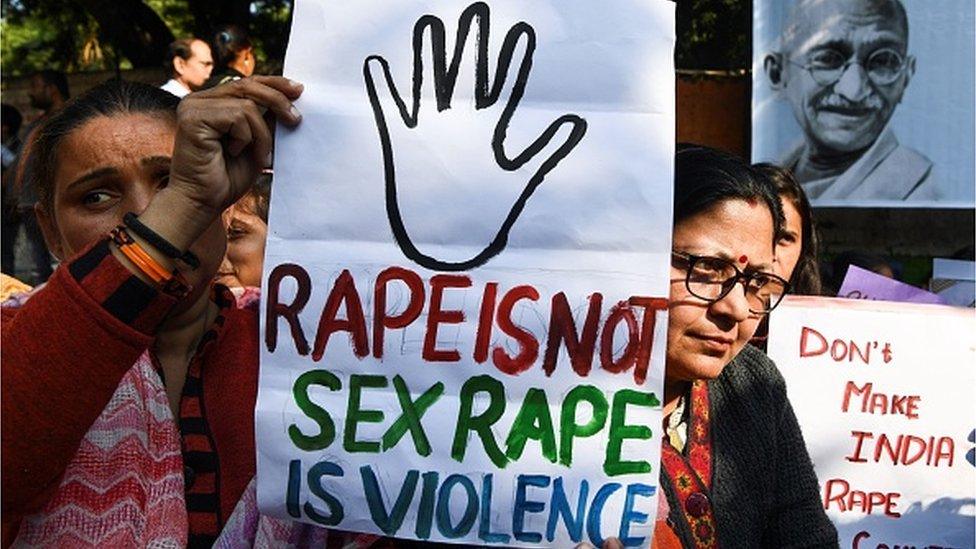
- Published3 July 2020
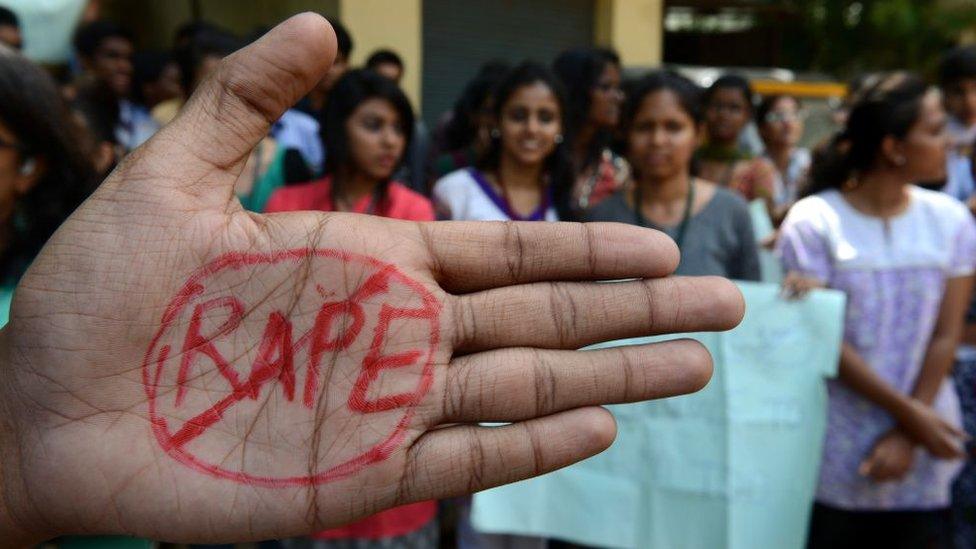
- Published21 May 2021
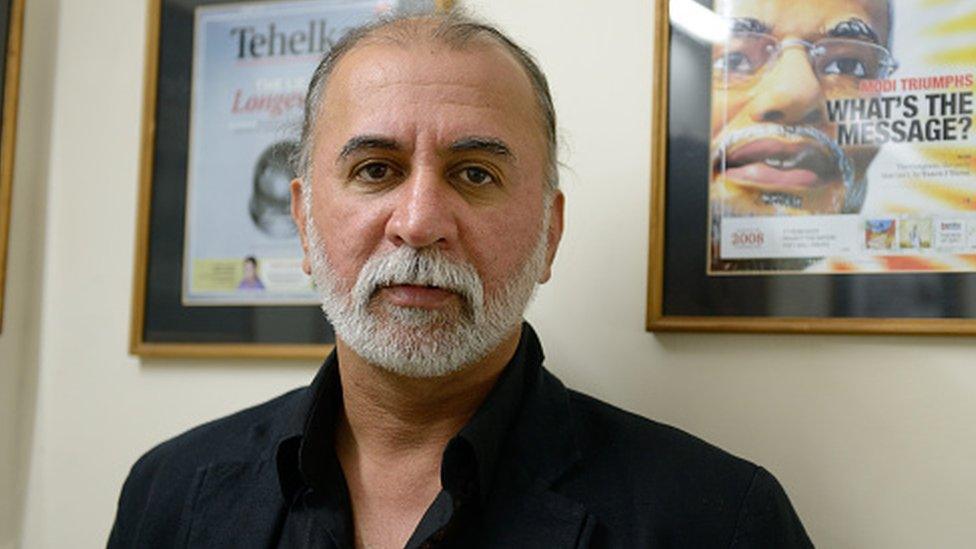
- Published17 February 2021
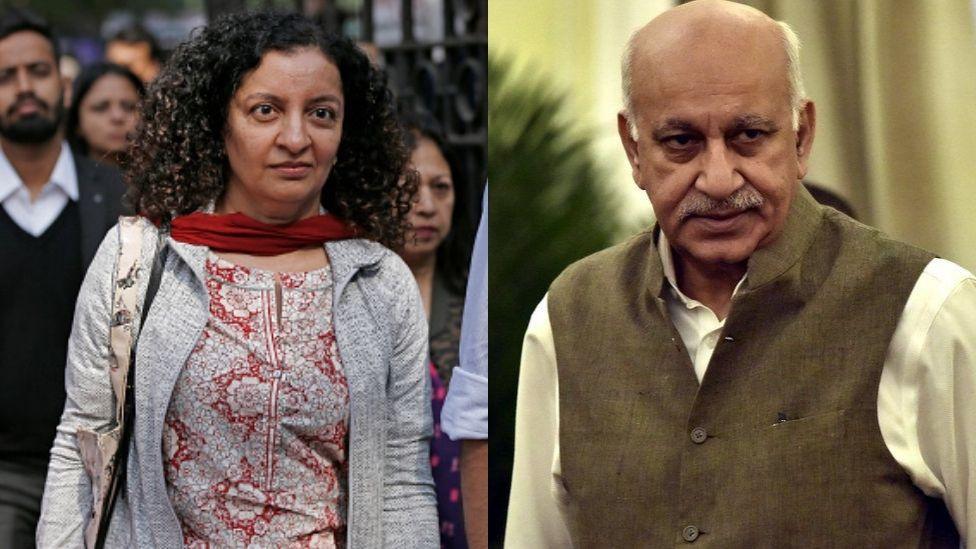
- Published28 November 2013
